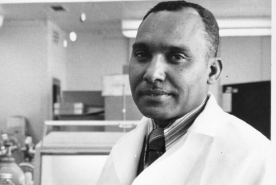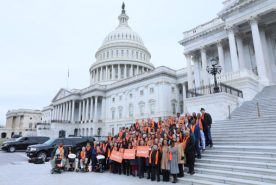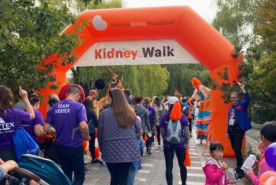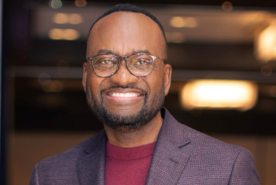January 22, 2024
By Lauren Drew, Director of Congressional Relations
UPDATE 3/24/2024: President Biden has signed into law the FY24 funding package that includes an additional $23 Million for the HRSA OPTN Modernization Initiative, for a total FY24 funding of $ 52 Million. We are excited for this vote of support from Congress and the President, and will continue to advocate for robust funding for this important project. We look forward to continuing to advocate for an improved organ donation and transplantation system that is efficient, transparency, accountable, and patient-centric.
Hello and Happy New Year Advocates! I hope you all had a restful holiday season and are ready to get to work in the second half of the 118th Congress!
A major topic this year will be the HRSA OPTN Modernization Initiative. Let’s break it down:
- HRSA: The Health Resources and Services Administration. It’s a division of the Department of Health and Human Services, and it is where the Organ Donation and Transplantation programs live.
- OPTN: The Organ Procurement and Transplantation Network (OPTN) is the national system that allocates and distributes donor organs to individuals waiting for an organ transplant. The OPTN system includes transplant centers, donor hospitals, Organ Procurement Organizations, and other transplant stakeholders. Since its creation in 1984, administration of the OPTN has been performed by a single government contractor: the United Network for Organ Sharing (UNOS) HRSA is the government entity charged with overseeing the OPTN and UNOS.
A lot has changed in the 40 years since OPTN was first created, including our information technology, supply chain management, and business operations. Unfortunately, the transplant system hasn’t always kept up. The system currently relies on outdated technologies (like voice mail and faxes), it doesn’t leverage tools like predictive analytics or machine learning, and inefficiencies in the system contribute to the non-utilization of approximately 7,500 organs each year.
What is Congress doing about this?
Congress unanimously passed and President Biden signed the Securing the US OPTN Act. This bill gives HRSA the ability to break up the traditional contract and instead of giving all parts to one entity (UNOS), it can separate the contract into different areas of expertise:
- Board Governance
- Information Technology
- Research and Evaluation
- Communications
- Operations
This Modernization Initiative is designed to address and improve the poor performance and lack of oversight that has plagued the OPTN for years. Our hope is that it will result in more and quicker transplants, less under-utilized donor organs, and better data transparency for patients and the community.
So, what does this mean for NKF’s Government Relations Agenda? On the Congressional side, NKF will be asking Congress to make sure HRSA has the funding it needs to successfully implement this plan. Morgan will be working with HRSA to ensure that the Modernization Initiative is patient-centric and responsive. And we will be asking YOU to help us educate Congress and the Administration about the patient experience in donation and transplant. Want to stay in the loop? Sign up for advocacy alerts here!
For more information on the HRSA Modernization Initiative, visit the HRSA website at: https://www.hrsa.gov/optn-modernization.


















